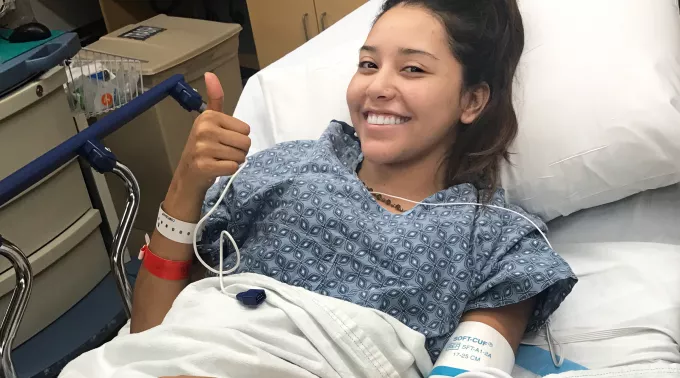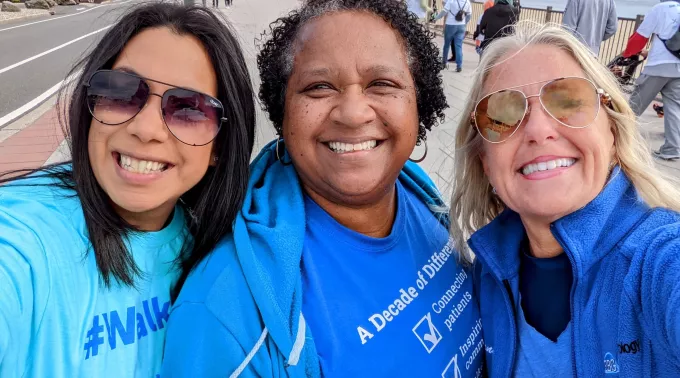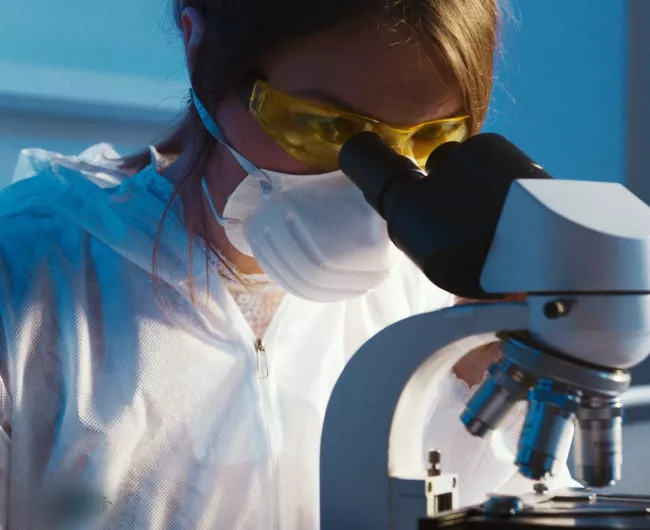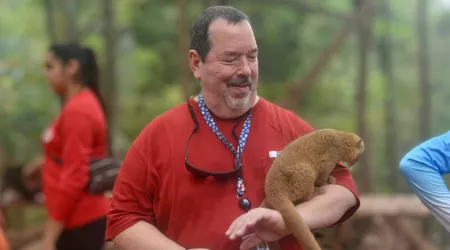
Treatment
Colorectal cancer is highly treatable if caught early. There are many types of treatments for colorectal cancer, but your treatment will depend upon the location of the cancer and the stage of diagnosis.

Newly diagnosed with colorectal cancer? Start here.
If you or a loved one has just been diagnosed with colorectal cancer, it's important to find out as much as you can about the disease. Visit our newly diagnosed page to find helpful information and resources to put you on the path to survivorship.
Treatment resources for people impacted by colorectal cancer
No matter how you've been impacted by colorectal cancer, we're here for you with information and support about treatment.

For patients
Colorectal cancer is highly treatable, but going through treatment can be tough. Knowing what to expect can help. We've put together helpful information and resources about your treatment options.

For survivors
Now that you've defeated colorectal cancer, what comes next? Get information and resources about being a colorectal cancer survivor, from monitoring for recurrence to staying cancer-free.

For caregivers
When a loved one is diagnosed with cancer, you’re shoved into a world of medical appointments and barely understandable cancer jargon. We've assembled a collection of caregiver resources to help.
Types of colorectal cancer treatments
There are several treatment options for colorectal cancer. We're here to help you learn more about each treatment option and what to expect.
Surgery
Surgery for colorectal cancer is when a surgeon removes the diseased portion of your colon and/or rectum.
Colostomy and ileostomy
A colostomy is created when a portion of the colon or the rectum is removed and the remaining colon is brought to the abdominal wall.
Chemo, radiation, and other therapies
Colorectal cancer can also be treated using systemic therapies like chemo and radiation that reach cancer cells throughout the body.
Find a clinical trial
Clinical trials are an important treatment option to consider. Answer a simple series of questions about your medical condition to find relevant trials that may fit your needs.

Why biomarkers matter
Understanding your biomarkers helps you and your doctor decide on the most effective treatment plan for your colorectal cancer. During biomarker testing, doctors collect a sample of your tumor or your blood to look for unique characteristics, such as whether your cancer is caused by an inherited mutation.
Get help and support
When you're undergoing treatment for colorectal cancer, it can be helpful to seek support. Resources, information, and allies to talk to are always available.
Sign up for BlueHQ
BlueHQ is a free, comprehensive support hub that delivers personalized resources, tools, and communities to better navigate colorectal cancer.
Contact our live Helpline
The Alliance's certified patient and family support navigation team is here to assist colorectal cancer patients, survivors, and caregivers.
Join our online communities
No one should experience colorectal cancer alone. Our national network of survivors and advocates is standing ready to be your ally.
Buddy program
A vetted Buddy who has been through a similar diagnosis can share meaningful and useful advice that helped them get through colorectal cancer.
Visit the resource library
Our trusted resource library offers articles, videos, guides, and other information to help you and your loved ones navigate colorectal cancer.
Personalized treatment program
The Alliance’s Personalized Treatment Program provides no-cost testing and analysis of your cancer and medical history. The results provide you and your care team with personalized treatment recommendations.
Top resources

EPIC Act to Advance New CRC Therapies Needs Support
The EPIC Act would encourage investment in clinical trials for additional uses of existing drugs.

Michelle Cappel: Biomarker testing extends life
Michelle Cappel owes a lot to colorectal cancer biomarker testing — seven years of life and counting.

Don Shippey: from stage IV to six years cancer-free after receiving HAI pump
Don Shippey was 55 years old in 2016 when he decided he’d been putting off his colonoscopy long enough.






